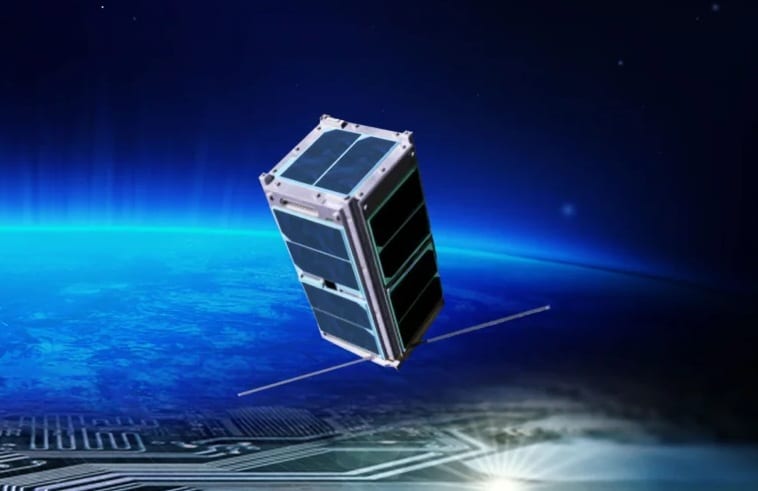
The primary mission of MICE 1 is to improve data communication with ocean-going vessels. Credit: Prisma Electronics
Greece is poised to enter the commercial space domain with the launch of its first private nanosatellite, MICE 1, scheduled for November 11th from Florida, USA, aboard a SpaceX mission led by Elon Musk.
The nanosatellite, measuring 30cmx10cm was designed and built by Prisma Electronics S.A., based in Alexandroupolis, northeastern Greece, in collaboration with the Democritus University of Thrace.
Nanosatellite’s role in global shipping
The primary mission of MICE 1 is to enhance Greece’s global leadership in shipping by improving data communication with ocean-going vessels.
The satellite will communicate with the existing LAROS platform installed on ships, which collects all vital vessel data.
It will facilitate the transmission of this critical data directly to the management of shipping companies for immediate utilization. This real-time information is of immense value to the Greek shipping industry, which plays a dominant role in global maritime transport.
Christos Giordamlis, CEO of Prisma Electronics S.A., confirmed that while MICE 1 has broader capabilities, its initial operational focus is the maritime navigation service. He indicated that the company remains open to future collaborations, such as monitoring fishing boats in Greek waters, if requested by the Ministry of Maritime Affairs.
Related: Swarm of Made-in-Greece Satellites to be Launched Within Two Years
A new chapter for Greek technology
Giordamlis emphasized the significance of the launch, stating it “marks a new chapter for Greek technology and the participation of Prisma Electronics in the European space domain.”
He highlighted the collective effort behind the achievement:”It is the result of years of effort, collaboration, and dedication from the entire Prisma Electronics team, which managed to transform an ambitious idea into a tangible achievement… MICE-1 is not only the first Greek nanosatellite designed for operational exploitation, the first mission of a Greek company in collaboration with a Greek university—the Democritus University of Thrace—it is a symbol of our country’s ability to innovate, cooperate, and offer solutions with a real impact.”
The project was realized with essential funding from the ‘GREECE 2.0’ program, the Greek Government, and the European Commission, operating under the auspices of the Ministry of Digital Governance and the guidance of the European Space Agency (ESA).
The CEO concluded that the mission contributes to the European space effort, “bringing Greece closer to space, to a more sustainable future and a safer planet for shipping and people.”
Related: Greece to Launch Homegrown Military Satellite Program
